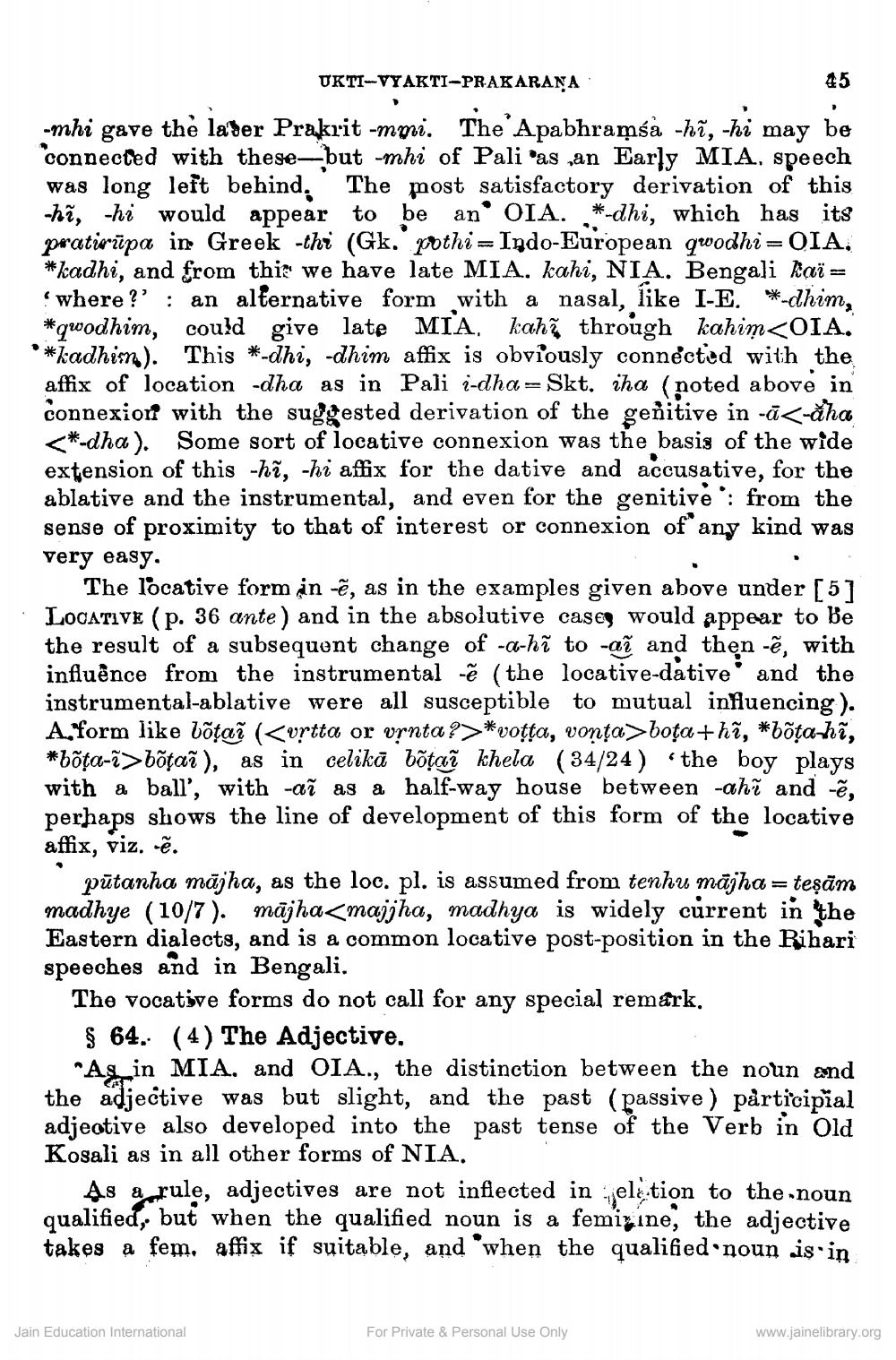________________
UKTI-VYAKTI-PRAKARANA
-mhi gave the later Prakrit -mmi. The Apabhraņśà -hi, -hi may be connected with these- but mhi of Palias an Early MIA, speech was long left behind. The post satisfactory derivation of this -hi, -hi would appear to be an OIA. *-dhi, which has its pratirūpa in Greek -thi (Gk. pothi = Indo-European qwodhi =QIA, *kadhi, and from this we have late MIA. kahi, NIA. Bengali kąż = ? where?' : an alternative form with a nasal, like I-E. *-dhim, *qwodhim, could give late MIA. kahữ through kahim<OIA. **kadhim). This *-dhi, -dhim affix is obviously connected with the affix of location -dha as in Pali i-dha=Skt. iha (noted above in connexion with the suggested derivation of the genitive in -ī<-dha <*.dha). Some sort of locative connexion was the basis of the wide extension of this -hi, -hi affix for the dative and accusative, for the ablative and the instrumental, and even for the genitive : from the sense of proximity to that of interest or connexion of any kind was very easy.
The locative form ản -ē, as in the examples given above under [5] LOCATIVE (p. 36 ante) and in the absolutive casey would appear to be the result of a subsequent change of -a-hi to -as and then -ē, with influênce from the instrumental -ě (the locative-dative' and the instrumental-ablative were all susceptible to mutual influencing). A.form like võtał (<vrtta or vrnta?>*votta, vonta>bota+hĩ, *bõțahi, *bõta-ī>bõţał), as in celikā bõțaž khela (34/24) "the boy plays with a ball', with -až as a half-way house between -ahī and -ē, perhaps shows the line of development of this form of the locative affix, viz. bě.
pūtanha mājha, as the loc. pl. is assumed from tenhu mājha= teşām madhye (10/7). mājha<majjha, madhya is widely current in the Eastern dialects, and is a common locative post-position in the Rihari speeches and in Bengali.
The vocative forms do not call for any special remark,
§ 64. (4) The Adjective. *As in MIA, and OIA., the distinction between the noun and the adjective was but slight, and the past (passive) pårticipial adjeotive also developed into the past tense of the Verb in Old Kosali as in all other forms of NIA.
As a rule, adjectives are not inflected in el tion to the noun qualified, but when the qualified noun is a femizine, the adjective takes a fem. affix if suitable, and 'when the qualified noun is in
Jain Education International
For Private & Personal Use Only
www.jainelibrary.org




